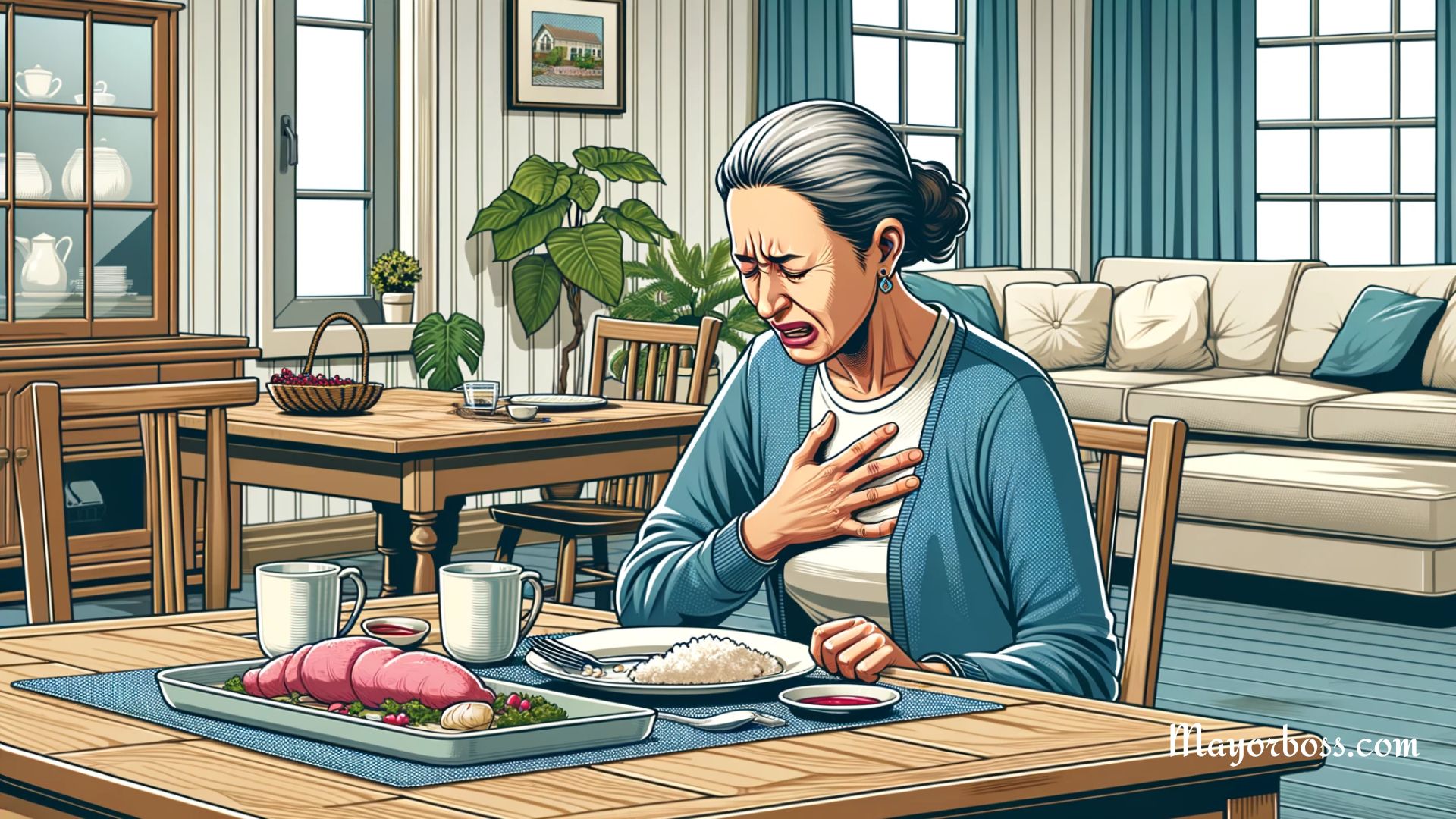Chest Pain After Eating: Causes & Prevention
Experiencing chest pain after eating can be alarming, and you’re right to pay attention to this symptom. While it’s often not a cause for panic, understanding the potential causes and knowing when to seek medical attention is crucial. Let’s explore what might be causing your chest pain after eating and how you can address it.

Causes of Chest Pain After Eating
Gastroesophageal Reflux Disease (GERD)
GERD, commonly known as acid reflux, is a frequent culprit behind chest pain after eating. It emerges when stomach acid flows back into the esophagus, leading to a burning sensation often referred to as heartburn. Along with chest pain, you might experience a sour taste or a sensation of food returning to your mouth. If you notice that the pain worsens when you lie down or bend over, GERD might be the cause.
Esophageal Spasms
Esophageal spasms are sudden, painful contractions in the muscles of the esophagus. These spasms can mimic heart pain, and they might happen after you eat, especially if you consume very hot or very cold foods.
Peptic Ulcers
Peptic ulcers are sores in the lining of your stomach or the first part of your small intestine. They can cause a burning or gnawing pain in the middle of your abdomen, which might radiate to your chest, especially after meals.
Hiatal Hernia
A hiatal hernia happens when the upper part of your stomach protrudes through an opening in your diaphragm. This condition can exacerbate GERD symptoms, leading to chest pain after eating.
Food-Related Causes
Sometimes, the pain may be due to what or how you eat. Eating too quickly, consuming large meals, or eating foods that you’re allergic or sensitive to can trigger discomfort.
Heart Problems
While less common, it’s crucial to consider that chest pain can sometimes be a sign of heart problems, particularly if the pain is sharp, squeezing, or accompanied by other symptoms like shortness of breath, dizziness, or nausea.
When to Seek Medical Attention
- Persistent or Severe Pain: If the chest pain is severe, doesn’t go away, or keeps recurring, you should see a doctor.
- Accompanying Symptoms: If chest pain is accompanied by symptoms like difficulty breathing, sweating, dizziness, or pain in your arms, back, neck, or jaw, seek immediate medical attention.
- History of Heart Disease: Those with a history of heart disease or risk factors should be more cautious and consult a doctor promptly.
Management and Prevention
- Eat Smaller Meals: Large meals can strain your digestive system.
- Avoid Trigger Foods: Spicy, acidic, or fatty foods can exacerbate symptoms.
- Don’t Lie Down Immediately After Eating: Give your body time to digest.
- Antacids and Acid Blockers: Over-the-counter remedies can provide relief for GERD-related chest pain.
- Prescription Medications: If over-the-counter options aren’t effective, your doctor may prescribe stronger medications.
- Relaxation Techniques: Stress can aggravate digestive issues, so practices like deep breathing or yoga can help.
Frequently Asked Questions
Can stress cause chest pain after eating?
Yes, stress can exacerbate digestive issues, including GERD, leading to chest pain after eating.
How can I differentiate between heart-related chest pain and digestive-related pain?
Heart-related chest pain is often more intense and may come with other symptoms like shortness of breath or arm pain. Digestive-related pain is usually localized and related to eating habits. However, it’s always best to consult a doctor for a proper diagnosis.
Is it normal to experience chest pain after eating occasionally?
Occasional mild chest pain after eating, especially if it’s clearly linked to something you ate or how you ate, isn’t usually a cause for concern. But if the pain is frequent, severe, or worrying, it’s important to see a doctor.
Remember, while it’s often something manageable like GERD or a dietary issue, chest pain after eating shouldn’t be ignored, especially if it’s severe or persistent. Consult a healthcare professional to ensure that you’re addressing any underlying issues effectively.
